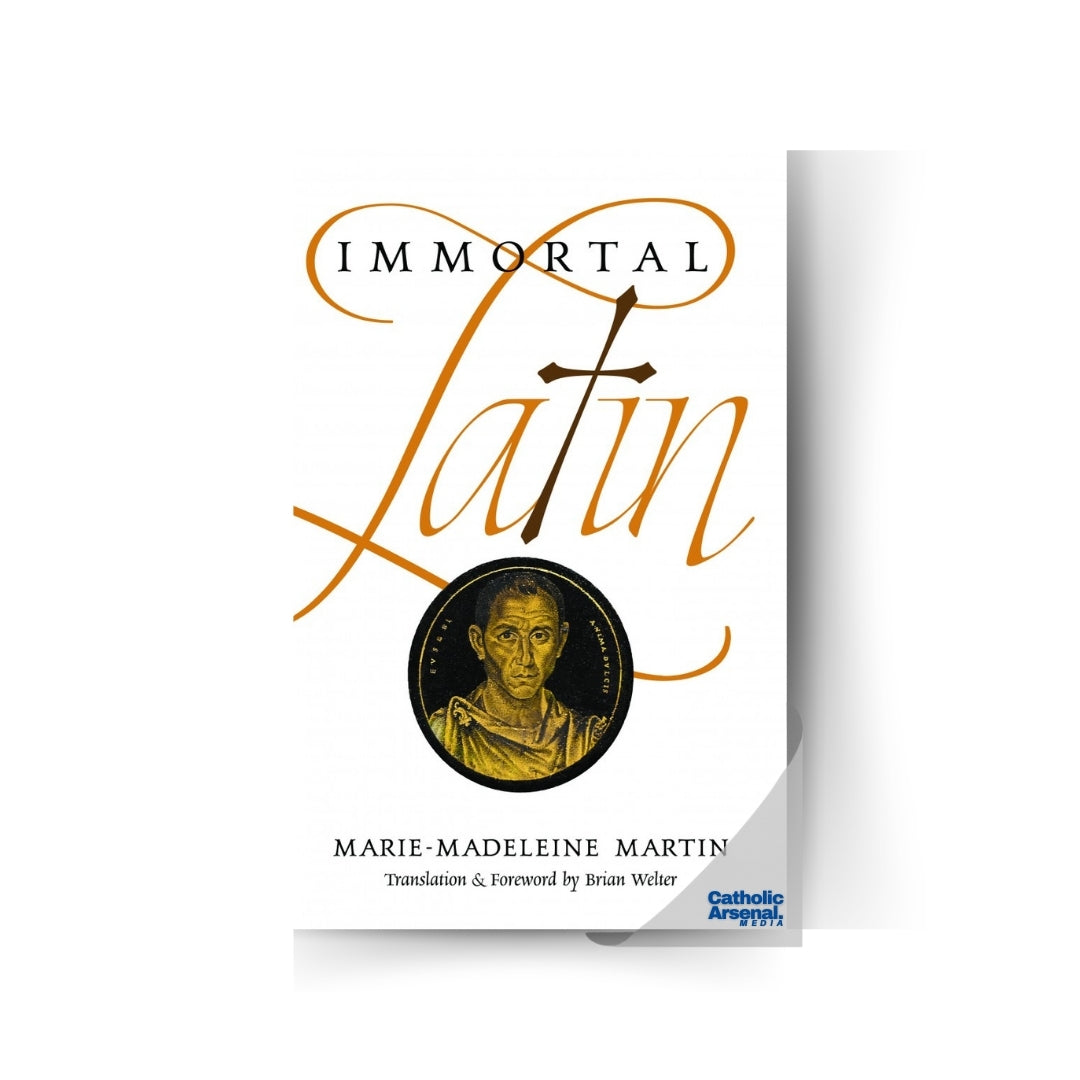Catholic Arsenal Bookstore
Immortal Latin
Immortal Latin
Couldn't load pickup availability
Weight: 386-55s grams l Dimension: 16 x 2 x 23 cm l 260 pages
Originally published in 1966 as Le Latin Immortel. This English edition is taken from the 4th French edition published in 1989 by Éditions Reconquista. Permission granted for this English translation.
Translation and foreword by Brian Welter
*****
In 1964–65, the Roman Catholic Church brutally and almost universally abandoned the Latin language. This sparked a violent polemic in some places, with often superficial arguments.
At that point, a French writer published a far-reaching study. The historian Marie-Madeleine Martin, former student of the École des Chartes and first female winner of the Grand Prix Gobert d’Histoire, developed the following argument:
“We maintain that in this instance, the debate extends to every part of society, and beyond the purely religious terrain. It concerns the history of the world because Rome’s least contested glory is its major contribution to universal civilization. Rome was not a nation, or did not remain as one for long. The empire it established reigned over East and West. Rome found the means to enable diverse peoples and civilizations to live together, thereby providing an enduring message which is valid for every human city.”
“In 1910 the great Italian writer Guglielmo Ferrero...noted: ‘Rome’s history, and hers alone, is universal, which is why she cannot be similar to dead empires.’”
Certain chapters of Immortal Latin will arouse intense surprise in the reader:
• the demonstration of Rome’s role in what is called the primitive Greek church;
• a completely new painting style, traced back to the Renaissance;
• beautiful seventeenth-century European frescos;
• the revelation of an attempted French liturgy on the eve of the French Revolution;
• ceaseless attacks against Latin in the last three centuries;
• the demonstration of Latin’s character of UNIVERSALITY.
About the Translator
Brian Welter teaches advanced high school reading and writing. He is interested in French literature, medieval history and aesthetics. He has a BA in history and degrees in theology, including the DTh. He also has a graduate diploma in teaching English. In addition to French, he reads Italian, German, and Latin. He has translated Salazar and His Work: Essays on Political Philosophyby Marcel de Corte, Pierre Gaxotte, and Gustave Thibon.
Share


